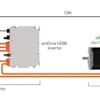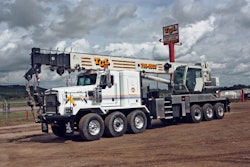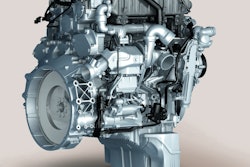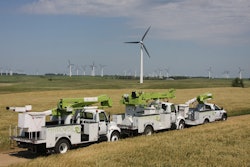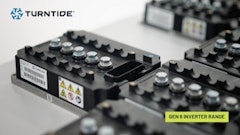
The Case IH tractor plant in Racine, WI, home to the Magnum Series tractor, was recently accredited with ISO 50001 certification for energy management, joining a handful of companies worldwide to receive such a rare honor.
“This accreditation for ISO 50001 recognizes the Racine plant’s continuous improvement in energy efficiency and Case IH’s long-term commitment to reducing its environmental impact,” says Steve Tyler, Racine Plant Manager. “This certification is another testament to this world-class manufacturing facility and can be a source of pride for our employees and the community.”
Because energy is one of the most critical challenges facing the international community, the ISO 50001 certification is intended to provide organizations with the framework for integrating energy practices into their management procedures. To achieve the ISO 50001 certification, the Racine tractor plant was audited by a third-party firm, UL-DQS, which recommended the plant to the American National Accreditation Board (ANAB). Under its current energy management system, the plant will continue to improve its energy efficiency and has formalized its process, tools, roles and responsibilities to ensure the system’s sustainability.
The ISO 50001 certification for energy management is the Racine plant’s fourth certification. It also has been certified ISO 9001 for quality management systems, ISO 14001 for environmental efficiency and OHSAS 18001 for health and safety. The plant was also named a "Plant of Excellence" by Societe Generale de Surveillance (SGS), a leading company in inspection, verification, testing and certification.
The Racine plant is home to the Case IH Magnum Series tractors, which are used worldwide. In 2011, approximately 40% of the Magnums produced at the plant were destined for export. The Racine plant also produces transmissions and final drives for Axial-Flow combines and Module Express Cotton Pickers, cabs for the Patriot sprayers, and axles and valves for Steiger Series tractors.
“Producers have a big job ahead of them -- from feeding an expanding global population while meeting strict emissions regulations, to producing more food on less acreage, all while minimizing their environmental impact,” explains Tyler. “This accreditation is part of Case IH’s commitment to helping agricultural producers be ready to meet these challenges.”



